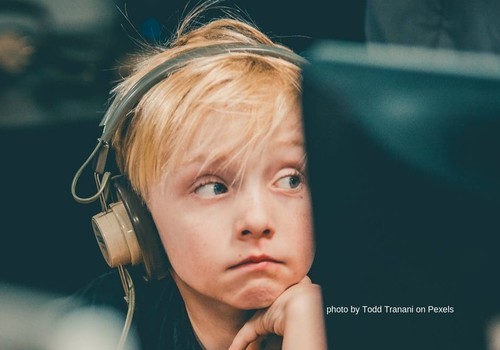
With iPads and Chromebooks now supplanting paper and pencils in many schools, and students using a constellation of apps and programs, a unique digital footprint is being created for each child —one that could follow them for the rest their lives. But if you act now, you can help better protect students and their data.
Until Monday, December 9, the Federal Trade Commission is asking the public what should be added to the Children’s Online Privacy and Protection Act. COPPA “prohibits unfair or deceptive acts or practices in connection with the collection, use, and/or disclosure of personal information from and about children [aged 12 and under] on the Internet,” as the law states.
Whether you’re a parent or not, this is how to make a comment and why your opinion is needed now:
BASIC COPPA PROTECTIONS
Though COPPA provides protections elsewhere online, it does not specifically stipulate how data generated by 12-and-under children is protected at school. It should be possible for parents to be able to understand and control how student data is created, stored, and shared. This is especially important as schools move toward becoming “big children’s data hubs” powered by new forms of artificial intelligence.
To ensure full transparency of how technology products are selected and used in school, COPPA could require all makers of apps, software, hardware, services, or platforms to:
-Post, for at least the school community and/or school district, how student data is generated and protected for security, confidentiality, and integrity.
-Collect only enough data needed to operate a product and never share a student’s data with undisclosed 3rd parties or use for commercial purposes.
-Give parents the right to review and/or delete student data.
-Delete non-essential student data at the end of every school year.
If you think that’s a good idea, tell the FTC those practices should be included in COPPA.
GIVING SCHOOLS YOUR CONSENT
Normally under COPPA, parents must give consent for their 12-and-under children to use an app, game or other online product. But the FTC wants schools to give consent on behalf of parents, which the agency has informally encouraged and is already happening on a widespread basis.
Is that OK with you? If not, under which circumstances would you allow schools to grant consent on parents’ behalf?
Consider making these points to the FTC:
- Whether schools give consent on behalf of parents or parents provide direct consent, schools must publicly disclose all apps, services, devices and other products required to be used by students; criteria used to approve each product or service; and the company’s terms of service, privacy and security. This should extend to any artificial intelligence practices such as facial and/or voice identification of students or student tracking platforms.
- Schools that allow 12-and-under children to use a product or products made for children older than 12 must be stopped because that practice is ILLEGAL (even now) under COPPA.
PROTECTING STUDENTS OVER AGE 12
COPPA only protects the data of children ages 12 and under. If you think that’s not sufficient, put the FTC on notice you want kids’ data to be protected all the way through high school.
When giving your thoughts, it helps to tell a personal story from your or your child’s own experience.
The process is easy. Just write your comments in the box by December 9 using this link.
And after you comment, consider signing this petition from the Campaign for Commercial-Free Childhood telling the FTC that kids need more protection of their online data—not less.
All that done, here’s a great resource for learning more and talking to your child about protecting their data online.
About the author: Jenifer Joy Madden is a health journalist, digital media professor, parent educator, and parent of three. Her work has appeared on numerous news outlets including ABC News and The Washington Post and in her books How To Be a Durable Human: Revive and Thrive in the Digital Age Through the Power of Self-Design and The Durable Human Manifesto: Practical Wisdom for Living and Parenting in the Digital World. She also hosts the online parent education classroom, Durable U.




Schools must publicly disclose all apps, services, devices and other products required to be used by students; criteria used to approve each product or service; and the company’s terms of service, privacy and security. This should extend to any artificial intelligence practices such as facial and/or voice identification of students or student tracking platforms. Schools must NOT be allowed to let a child 12-and-under to use a product or products made for children older than 12. This is simply ILLEGAL and schools must be stopped.